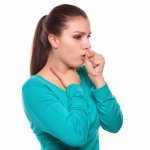Everything you need to know about indoor air quality
Did you know you might be putting pollutants into the air in your house without even realizing it? We want to help you keep your air fresh. We’re not saying you need to call us this second and hire us to clean your air, because we don’t want to move too fast! Let’s start by giving you the knowledge you need to reduce air pollutants in the home.
Where do the pollutants come from?
Pollutants in your home come from a variety of sources. If you have a new house or have done renovations, building materials and carpeting have chemicals that aren’t healthy for our lungs. These are a little more obvious because we can usually smell the chemicals. Cleaning products, air fresheners and candles, and personal care products are used more regularly and can reduce air quality. While we would never tell you to stop cleaning, burning candles, or using hairspray, be aware that they contain harsh chemicals and you breathe them in.
Biological pollutants may be in the air as well. This includes organic things such as molds and bacteria. Most people are aware of mould and try to keep it away, but it can be hidden in walls and ceilings. Even houseplants can have mould that’s unhealthy for us.
Radon is another dangerous pollutant. It’s a gas that is naturally produced as soil and rocks decay, which can happen near or under any home. Very small amounts of exposure to radon aren’t dangerous, but houses with basements, crawlspaces, and poor ventilation can sometimes accumulate radon that poses a health threat.
How do I stop them?
Limit the use of harsh or synthetic products as much as possible. For example, it’s really not necessary to have a candle burning every day. There are also often natural alternatives for almost every product you know, and they won’t contain the same chemicals. Sometimes they even work better than their synthetic counterpart. Have you seen how clean windows can be when they’re washed with vinegar?
Since it’s almost impossible to avoid all of these products, and you really can’t prevent radon, it’s important to have a good ventilation system in your house. This will keep the air moving so the pollutants don’t become more concentrated.
To reduce the risk of biological pollutants, keep the humidity in your house under 50%. By doing this you are creating an environment that is difficult for them to survive in, so they are less likely to form.
We hope you can use this information to keep the air in your home safe. Be aware that even if you do everything we suggested, it’s still a good idea to change your furnace air filter often. You clean yourself and your belongings regularly, and your air needs the same treatment. Stay safe and breathe easy!




